
Microtransactions Are Hurting and Devaluing Video Games - Article
by Taneli Palola , posted on 14 September 2017 / 18,302 ViewsOver the last few years microtransactions have become increasingly more commonplace within the video game industry, popping up in a huge number of high profile games as video game companies have realized the potential profits that can be made from them. This system is understandable in free-to-play games where microtransactions are the only source of income for the developer. A good example of a game like this would be something like Dota 2, where the main purpose of microtransactions is to buy cosmetic changes to the various characters in the game, while the game itself and all of the characters remain free-to-play for everyone.
However, the use of microtransactions in games becomes an issue when they are used in full priced premium titles. We already have to deal with things like pre-order bonuses, season passes, barely justifiable DLC, content cut from the base game to later sell as said DLC, and so on. It's been a long time since the video game you bought was the one you got and that was it. Of course, that's not always a bad thing. Additional content for a full game can be, and has been, done very well by many great developers. The Witcher 3 is usually cited as an excellent example of how to do DLC right. It's unfortunate that games like this are seemingly in the minority among AAA titles nowadays.

Currently it isn't all that uncommon for a person who wants to experience a game in its entirety to have to not only pay $60 for the base game, but spend an equal amount of money on a season pass to access all of the meaningful content the title has to offer. Sometimes developers gate away content by only releasing it as part of the season pass, which itself was already taking monetization way too far, but now we're going beyond that as well.
I began writing this article when I first heard that the upcoming Middle-earth: Shadow of War was going to get lootboxes for players to buy with real money, in addition to paying for the actual game, but I have since had to rewrite this twice as Warner Bros. keep outdoing themselves with their absolutely awful handling of the game. It was initially just a good excuse to talk about a subject I've been thinking about for quite a while, but Warner Bros. have since turned into microcosm of everything that is wrong with AAA gaming today.
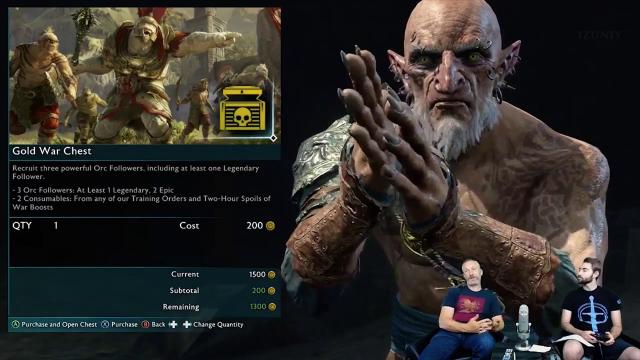
Microtransactions in fully-priced, premium games like Shadow of War, or Destiny 2, or any number of the other recent big budget titles are an insult to those people who pay upwards of $80 for those games in order to be able to play them. Because of these microtransactions, the game you buy is essentially an incomplete product, with countless little pieces carved out of it to facilitate the existence of in-game real money purchases.
However, the ones who may suffer even more from these practises are the developers who have to build such titles. Very rarely are video games built with microtransactions or paid content in mind. Ultimately, the people who work within the industry most likely just want to create something great and memorable for people to play and experience. Add paid content to the mix and things can become quite complicated.
First of all, the issue of balance comes up. After what could very well be years of hard work, creating a game based on a specific vision, suddenly introducing an entirely new element into the mix can disrupt the title's intended balance completely. The developers have to consider how this new content can affect and influence the gameplay, and try to rebalance the game accordingly. It screws over their original vision, and forces developers to change the core of a game to accommodate the potential changes brought on by paid content.
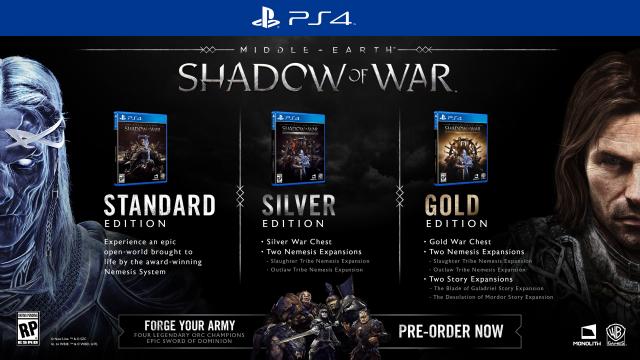
Furthermore, microtransactions have gotten to the point where you can pay for the “privilege” of not having to actually play some of the game's content, by allowing the player to essentially buy shortcuts to skip parts of the game. At that point whatever the original intent of the game's creators was becomes worthless, as the player can just unlock the content the developer spent countless hours creating immediately, instead of by actually playing through it and achieving a sense of accomplishment.
This is what ultimately devalues the game you just paid a lot of money for. By allowing players to buy what would normally be unlocked through gameplay, you're saying that the content isn't actually worth playing in the first place. People are paying for the privilege of not playing the game the developer has spent years making, so I guess what they created isn't all that good anyway. That's the impression the existence of these paid shortcuts leaves me with; that the game you bought isn't worth the time it would take to actually play through it normally.
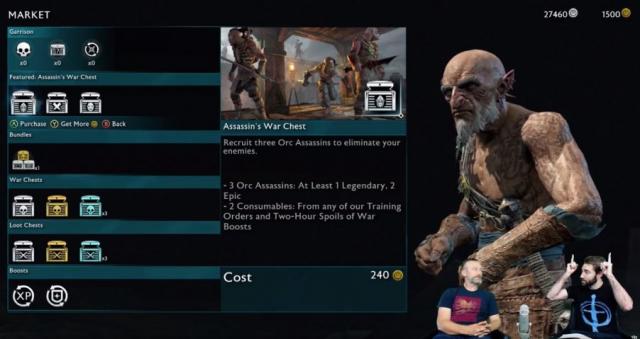
And then there are lootboxes, a practice that has been receiving notable backlash even in free-to-play games, but with their addition to numerous notable full priced games they are quickly becoming downright atrocious as a practice. By their very nature lootboxes are random, meaning you can't know beforehand what you will receive from one when opened. This means that when you're paying real money for the privilege of opening one, you're basically gambling for in-game items you might not even want in the first place. Shadow of War, for example, is selling players the orcs they would otherwise encounter during normal gameplay and have to dominate in-game, with real money. Not directly, of course, as Shadow of War contains an in-game premium currency players need to buy, which they can then use to buy the content, effectively attempting to hide the actual cost from players.
Shadow of War is just the latest in a long line of games to have pulled these stunts. Deus Ex: Mankind Divided saw microtransactions added during the last few weeks of development at the behest of the game's publisher, Square Enix, effectively screwing over player and developer; and in Dead Space 3 you could actually buy in-game items and weapons with real money, EA's justification being its desire to court mobile gamers (the main difference naturally being that most mobile games with microtransactions are actually free to play).
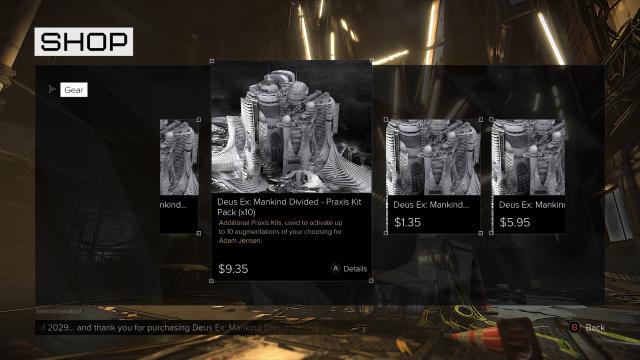
Some people have tried to justify the existence of microtransactions in AAA titles by saying that it's just optional content, and that it doesn't really affect the game itself; that you can just unlock said content simply by playing the game. This is just an excuse used to defend an awful practice. If it were the case - if they were that unimportant - then why do they even exist? Why do microtransactions need to be justified with such excuses in the first place if they are as harmless as publishers claim them to be? Besides, everything that is a part of a game affects that game, regardless of how supposedly minor an aspect of the game it is.
I know I'm not the first person, or the last for that matter, to bring this issue up. Others have discussed how this direction the industry is going is slowly hurting the value of the games we play. Yet, a lot of people still see this issue as a relatively harmless development within the industry as a whole, something that I could have perhaps agreed with years ago when we first started seeing developers releasing additional content for their games to add some value to them.
However, we've gone far beyond that point, with developers and publisher seemingly continuously experimenting with new ways to squeeze as much money out of consumers' pockets as they can. It may have started as DLC, but today a single game can contain paid DLC for both story and gameplay, in-game microtransactions, several different special editions, sequels where content that was free in previous games is locked behind a paywall, and of course lootboxes, as well as the keys with which to open said boxes. All this just points to publishers testing the waters, gauging how much they can actually get away with before there start to be consequences for such monetization of premium games. Somehow we clearly haven't gotten there yet, since these practices seem to become more egregious on a yearly basis.
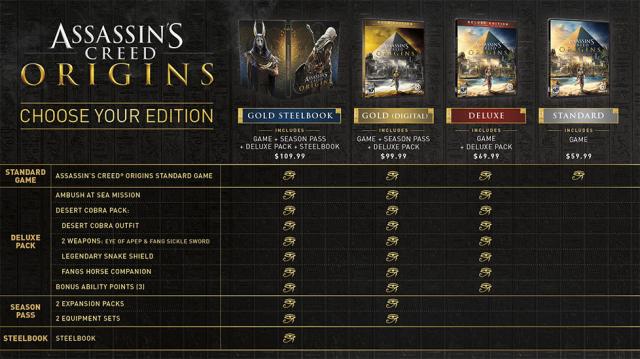
The most frustrating aspect of this is that each and every one of these practices can be done well, without purposefully devaluing the game at the core and simultaneously insulting the playerbase. It's truly unfortunate that I find myself becoming progressively less excited about certain games the more I hear about them. Personally, since being announced, Shadow of War has slowly but surely gone from a certain buy to a title I might consider getting at some point once its price eventually goes down and the content gets packaged together, and none of this has anything to do with the actual game, but rather all the extraneous stuff that has been tacked on to it by Warner Bros.
This might already be a lost cause, as it's unlikely publishers would willingly dial back any of this without fear of serious consequences. However, as a result, there is no longer a single AAA video game publisher I trust enough to even pre-order any of their games anymore. There was a time, once, when I wouldn't have thought twice about doing so with a major new title from Square Enix or Nintendo, but now I simply refuse to do so. Basically, I no longer expect to get a complete game if I buy it at launch. All of this is the result of publishers constantly cutting their games into smaller and smaller pieces and asking their customers to buy these pieces one by one to get the complete experience.
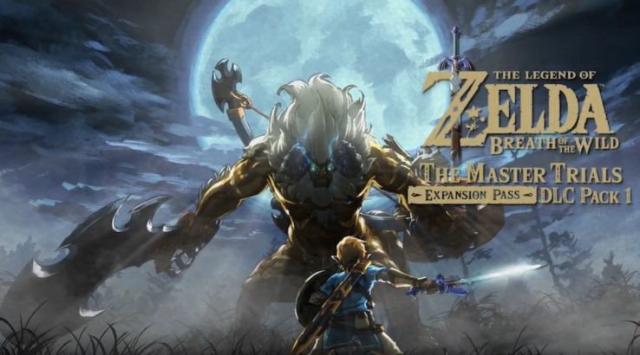
As I mentioned earlier, I know not all publishers do this. CD Project Red's handling of Witcher III was remarkable - the constant release of new free content and the game's excellent DLC should be lauded as something truly exceptional, and Nintendo has for the most part handled its game releases and additional content for those games very well.
However, for every company like that there is one like Activision that makes the remastered version of Call of Duty: Modern Warfare available at launch only with a purchase of the series' latest installment, or Warner Bros. that uses the death of one of its developers to sell a DLC orc character, with proceeds up to the end of 2019 going to charity. This would be fine, if the sales of that particular piece of DLC didn't only count towards charity in the US, and not even the entire US at that. Buy it anywhere else, and none of the profits go to charity.
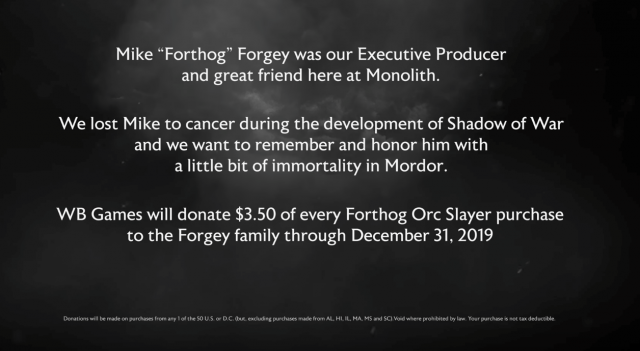
These kinds of actions by big publishers lead to the perceived devaluation of many of their biggest games. This isn't anything new at this point. We've been sold partially completed or intentionally gutted games many times over the last few years, and for as long as people just accept this, it will continue to happen, and likely get worse as publishers keep testing just how far they can go before these practices begin to negatively affect them in a meaningful way.
It has changed the way I perceive and treat new game releases now, and I find that to be quite sad. Video games are a medium I grew up with, and they have influenced my life tremendously in more ways than I can think, but these days I more often than not except the worst when it comes to announcements of new AAA games. At least this way I won't be disappointed when I hear news items like those surrounding Shadow of War, a game that will still likely be very good, or even great when it releases, but one that I simply can't get excited about anymore.
More Articles
As long as the consumer keeps pumping in the cash, this practice will continue.
That's the problem basically. It's shameless, but as long as people give them money, why should they stop if there's no consequences.
Consumers keep pumping in the cash as long as this practice doesn't hurt their enjoyment too much. It seems this hasn't hurt their enjoyment enough yet, so this will just keep getting worse and worse until it does. At worst, this could work so well that publishers base their games completely around microtransactions and such, possibly even offering the games for free or for a very low price.I don't think we're going to get that far, but who knows.
I remember thinking how cool the original Xbox was because it had a HDD in it. I was like "No memory cards needed!" Then, when Halo 2 came out and they were offering map packs for purchase, I remember thinking... "Oh shit..."
I agree. I will also point at Destiny 2 and even the sacred cow Blizzard that not only gouges with lootboxes on Overwatch, a max price game, as recently they are selling the virtual ticket for their convention as a glorified 40$/30€ wow mount! Disgusting!
A good summary of the issues Jim and others have been covering lately. The number of consumers outright defending these awful practices is so depressing, particularly as it suggests it'll only get worse. Hopefully there will be some sort of federal regulation in the future to at least curtail the exploitation of 'whales' with addictive personalities.
I don't anything can stop microtransactions now. They are working and nearly accepted by the mainstream. It's sad, but it is what it is.
Nowadays AAA+ games will now always have micropayments. Just look at GTA5. We had new GTA release every year, now when Rockstar discovered microtransactions, we are just getting new addons to current game.
I only have faith in CDPR now Rest of them can go F themselves
Gaming sure feels dirtier and more commercial than ever. It was always commercial, but the commercial side didn't use to be in the foreground before.
Bollocks. What is driving down the value of games is the insane inflation of games, the amount of releases, re-releases, rere-releases, the multiplatform craze, incl. backwards compatibility.... consequently driving down average demand per game, which in turn causes rapid deflation of prices. This contrasts ever rising costs of (AAA/AA) development. To counter this companies aim to maximise revenue during initial phase.
$60 for an incomplete game is a joke! Then pay more for DLC.
I made up my mind months ago to skip Shadow of War, because of all these issues. Good DLC needs to be ten hours of additional content or else I won't buy it.
I don't anything can stop microtransactions now. They are working and nearly accepted by the mainstream. It's sad, but it is what it is.






















 Essay Pro
Essay Pro